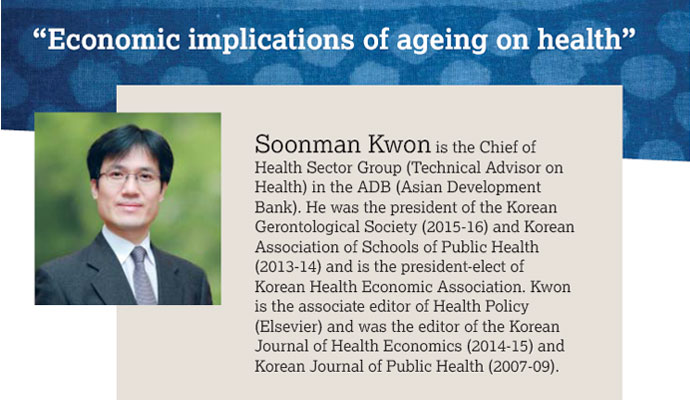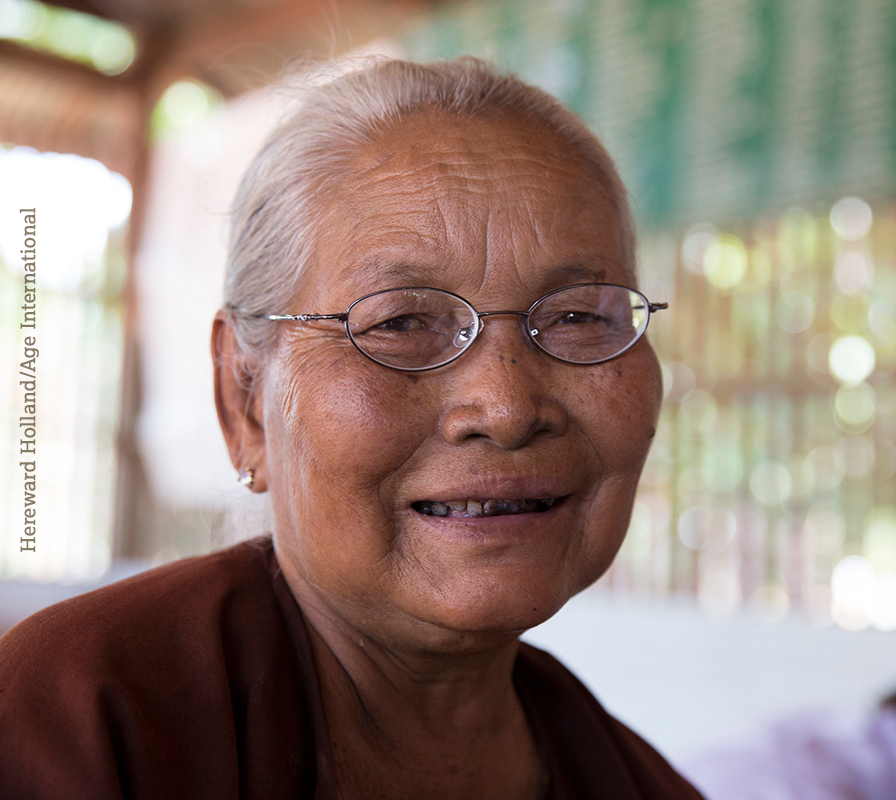
Why is it important to discuss the economics of healthcare for older people in Asia at this time?
Because many Asian countries are experiencing rapid ageing of their populations; not just Japan and Korea, but also countries like China, Hong Kong and Vietnam.
Population ageing implies a huge cost for a country’s social security system, such as its pension system, healthcare system and long-term care systems. An ageing population means that the number of people who can contribute financially to social security is constantly diminishing, while the number of people who need to use the services of these social security programmes is rapidly increasing. That’s why health economics is not just only about health but also about developing the social security system. Governments need to reform the whole system to improve the financial sustainability of the healthcare system and other security systems. It is inevitable that different policy and reform options have different financial implications.
What strategies can governments employ to ensure the affordability of healthcare for older people?
Universal health care should be one of the highest priorities for all governments, for both financial and health reasons. Money spent on healthcare is not simply an expenditure, but also an investment in economic development, as a healthy population can lead to economic growth.
At the same time, there is the element of equity to consider. We need to pay attention to the poor, especially older poor people. Investment in the poor elderly may not bring a direct economic return but from a human rights perspective, we should provide support.
Universal health coverage (UHC) has both moral and financial elements. From a moral perspective, we should ensure universal access to healthcare for everybody, including the older population, but we also need financing to support UHC. Governments should provide financial support or some kind of public insurance mechanisms. At the same time, to make UHC sustainable, we should make sure that healthcare services are delivered in a cost effective way.
Many low income countries focus purely on economic development but they should know that healthcare development and savings in healthcare costs can also contribute to economic development. For this and other reasons, we should guarantee universal health care for all countries.
What are the consequences for families when national systems don’t enable access to healthcare?
Without universal healthcare based on a public funding mechanism, when family members get sick, the family have to pay for medical care out of their own pockets. This is a huge financial burden, and it can have a catastrophic impact on household economy. Because of the high cost of healthcare, some families become impoverished.
What options are available to an individual needing long-term care in middle income countries (MICs) in Asia?
In terms of healthcare and long-term care, especially the latter, people who are able to pay can use private providers, even if there is a limited number of such providers. So I believe that governments should prioritise assistance for poor people who cannot afford to pay for health care. They should make sure that poor people have access to long-term care, either by building more facilities for long-term care providers or by paying for those poor people who use long-term care.
There is a significant difference between healthcare and long-term care. While healthcare is always provided by professionals, long-term care may be provided by either long-term care providers or by family members, more like social care.
But if a country does not have a good long-term care system, people tend to stay in hospital longer, which is more expensive than staying in long-term care facilities. If a country has good long-term care systems, sick people can move earlier from hospitals to long-term care facilities.
Overall, long-term care systems are very limited in the majority of Asian countries, with the sole exceptions of Japan and Korea, which have a separate public insurance mechanism for long-term care. In most other Asian countries, long-term care systems virtually do not exist. And in those cases where there are some long-term care providers, they are mainly for very poor people supported by the government, so they are provided from a social welfare or social assistance perspective. That means that the majority of long-term care services are provided by family members, who are called ‘informal care givers’.
How can groups of older people get involved in long-term care?
That is one of the differences between healthcare and long-term care. Health care, as I mentioned, is supposed to be provided by health care professionals, while long-term care may be provided by family members, relatives or community groups. So in that sense, the role of community groups or peer groups of older people can be greater in long-term care than in health care. There are a lot of community-based activities that are important not only for long-term care service provision but also for the general health of older people.

